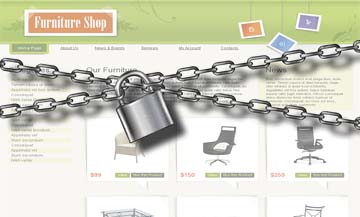Online seizure of the amounts available in bank accounts for payment of court enforcement of debts are commonplace, especially in the Labor Court, and are done directly by the judges who use the system that interconnects the Court to the Central Bank and the banking institutions, called BACENJUD.
Art. 835 of the Code of Civil Procedure (CPC) establishes a preference order for attachments, placing cash (in kind or invested) in the first place. If no cash is found, other assets and rights may be attached to guarantee the debt, such as personal property, real estate, vehicles, among others.
A series of possibilities are considered in the attachment of “other rights”, such as the attachment of a commercial establishment and of an electronic domain of Internet, that is, a website.
The attachment of a website makes sense when it comes to an Internet domain with strong influence in the market and/or if the website is important to the debtor.
Recently, the Court of Appeals of São Paulo acknowledged the validity of the attachment of an electronic domain on the Internet, considering that it is an intangible asset that is part of the commercial establishment. In order for an attachment to be deemed sufficient, it does not matter whether the judicial auction of these intangible rights is problematic or if the outcome of eventual foreclosure may not be satisfactory, what really matters is the consent of the creditor. If the creditor is satisfied with the attachment, it will be maintained.
In other words, it may even occur that the creditor will not have his debt paid directly as a result of the attachment of the website, but the nuisance that such attachment will bring may probably end up influencing the debt settlement or in the negotiation of an agreement.
Therefore, in case of judicial enforcement of a civil, labor or tax credit, if the debtor fails to pay and/or does not indicate sufficient assets to guarantee the debt, and if no assets are found to be attached as set forth in article 835 of the CPC, the company may be subject to the attachment of intangible assets, such as the commercial establishment or the Internet domain (website).
On the other hand, a company that has endured an attachment on its domain in the Internet may argue in Court that the website is essential and indispensable to the survival of the company, preventing a public auction from occurring and the domain of the website from being transferred to a third party.
It is important for companies to follow the evolution of thinking and legal practices so not to be surprised by the attachment of intangible assets, which may be disastrous in many respects, especially for those who work in e-commerce, or for those who rely on their website to prospect and achieve new businesses, to have a dynamic advertising and which is twenty-four hours online, as well as to position and strengthen their respective brand. The legal world also innovates!
Juliana G. Meyer Gottardi is partner at Pacheco Neto Sanden Teisseire Law Firm.
Valdirene Laginski was associate at Pacheco Neto Sanden Teisseire Law Firm.



